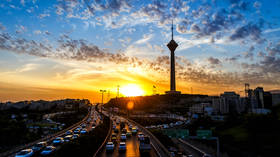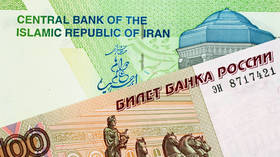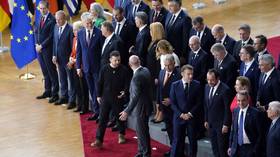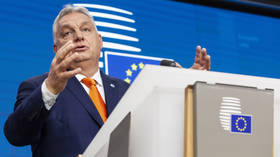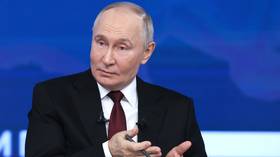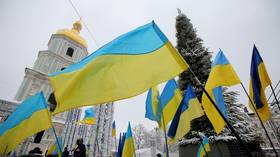Petr Akopov: As Putin visits Tehran, Russia and Iran are ready to create a strategic partnership
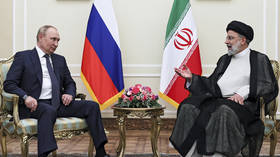
On Tuesday, Russian President Vladimir Putin is visiting Iran for a fifth time. Is that a lot or a little? Well, if you count back to 2000, when he first became the leader of Russia, it doesn’t seem like much.
However, if you look at the dates of the visits, a very different picture emerges. It turns out that this trip is the fourth in the last seven years.
Yes, Putin first came to Tehran in 2007, but his regular trips did not start until 2015. At the same time, all of Putin's visits have been of a working nature. He has never been to the Islamic Republic on an official tour. Each time his arrival was linked to a multilateral event held in the Iranian capital, such as The Caspian Forum, a summit of gas-exporting countries.
Or, as in this case, a meeting in the Astana format, i.e., a trilateral summit of Russia, Turkey, and Iran. This “big three” emerged five years ago in connection with the search for a solution to the conflict in Syria, but it has long outgrown that single issue. Because all three countries are truly sovereign states, they have a lot to discuss.
Moreover, while Turkey's importance in both regional and global affairs is well understood (by both supporters and opponents of strengthening bilateral relations), the role of Iran has been underestimated for many years. More precisely, it has been completely misjudged. The reason is simple. Our Western-oriented expert community looked at Iran mainly through the American-led prism: a rogue country, mullahs with missiles and a desire for a nuclear bomb, theocracy, a repressive regime, a security threat to the Middle East and the world, Islamic fanatics, etc.
In general, it has been perceived as some kind of eastern hole, incomparable to the advanced, enlightened and wealthy West.
The political leadership looked at Iran with different eyes, but what did our people know about the Islamic Republic? At worst a retelling of Western propaganda, at best some echoes of Traveler’s Club (a TV show once popular in Russia and the USSR). Even our pivot to the East after 2014 has not changed that perception: the real Iran is still very poorly known in Russia.
However, we are now moving towards a comprehensive strategic cooperation treaty – one that can last for 20 or 25 years. It could be signed as early as this year: in January, the new president, Ebrahim Raisi, presented the Iranian draft to Vladimir Putin in Moscow, and last month Sergey Lavrov brought the Russian version to Tehran. Russia and Iran will not become military allies (although military-technical cooperation is increasingly complemented by joint exercises), but our relationship will develop very seriously.
Iran is increasingly involved in the multilateral format of cooperation with Russia – it has already joined the Shanghai Cooperation Organisation (SCO); the accession procedure will be completed in autumn – and Tehran wants to join BRICS. In other words, we are talking about a full-fledged course towards strategic cooperation between the two countries, both bilaterally and on the global stage. Russia and Iran have enormous potential for cooperation, from trade to the North-South transport corridor linking the Baltic Sea to Iranian ports in the Arabian Sea. That is, the European Union to India via the Caspian Sea.
There is no need to think that Russia’s conflict with the West has made it irrelevant – the potential for North-South trade is still enormous. Even if the war of sanctions between Russia and the EU lasts for a long time, the corridor will be needed for Russia’s trade with the Middle East and Asia.
And most importantly, rapprochement with Iran is in Russia's strategic interests. Because we are not simply dealing with the heir to great civilizations, with an 86-million-strong country, but with one of the strongest nations in the world in spirit. Iran is truly a sovereign country, going its own way, looking for its own forms of state and societal organization, standing up for its national interests and not bowing to any external pressure.
This is exactly what Russia is doing, but we have yet to fully complete the process. And it is not even about the Iranian experience of living and developing under decades of Western sanctions – that too will come in handy, although the old world, in which the West could significantly hamper countries undesirable to it (and threaten to destroy them), is a thing of the past. More importantly, Iran has managed to find its own formula of state structure and social relations, a formula expressing exactly its national identity and aspirations.
The Islamic Republic is not a carbon copy of foreign models, Western or Eastern – it is a unique Iranian invention. It is complex, based on both tradition (religious and national) and the notion of the correct form of popular representation and the application of Islamic law. With its problems, mistakes, and lessons, but surviving in the most difficult external conditions. None of the great powers – and Iran is undoubtedly among them – has demonstrated anything like this kind of creativity in building a new kind of state in recent decades. The last one to have a similar experience was the Soviet Union.
Now we are again facing a huge challenge – we need to invent a new form of existence for our people and our state. Not only to withstand a confrontation with the West, but because we have long needed it ourselves.
The Iranian experience is not directly applicable to Russia, but their aspiration for an ideal social structure is close to Russians as well as the dream that the state must stand for justice, embody, and protect people's ideals, that the leaders must be honest, strong in spirit and feel their responsibility before the people and God.
And that is why Putin's fifth meeting with Rahbar Khamenei, the supreme leader of the Islamic Republic of Iran, is not just a conversation between two very influential and very experienced statesmen – it is also a meeting between two people who have something to talk about, besides global issues and challenges. Because if two countries such as Russia and Iran go their own spiritual and national way, then they will go together. And each will become stronger – no longer just responding to challenges from the West, but together building a new world where traditionalist peoples can live by their own ways and their own laws.
This article was originally published by RIA Novosti
The statements, views and opinions expressed in this column are solely those of the author and do not necessarily represent those of RT.

